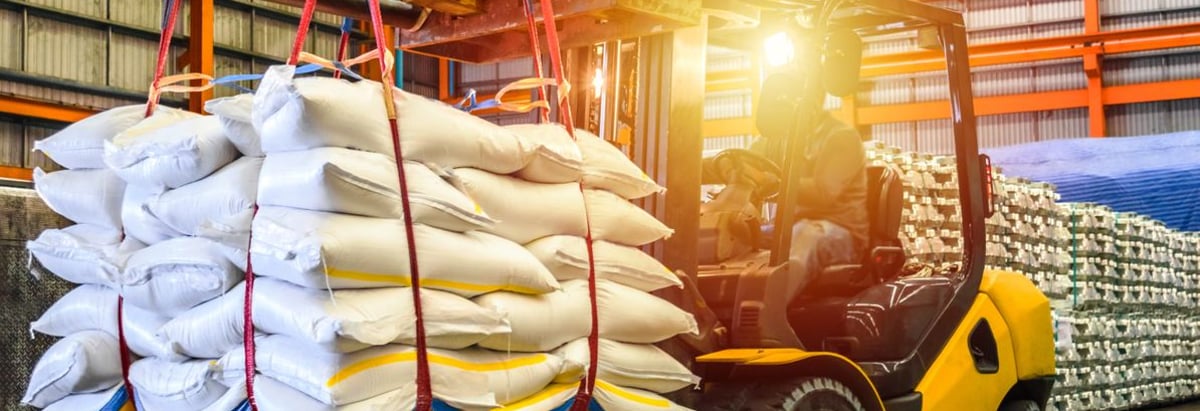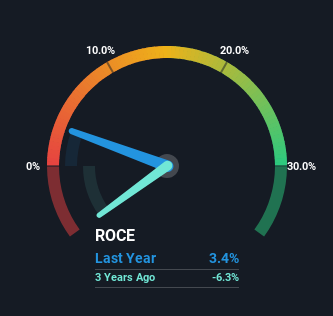- Singapore
- /
- Hospitality
- /
- SGX:BQD
Envictus International Holdings' (SGX:BQD) Returns On Capital Are Heading Higher

Did you know there are some financial metrics that can provide clues of a potential multi-bagger? Typically, we'll want to notice a trend of growing return on capital employed (ROCE) and alongside that, an expanding base of capital employed. This shows us that it's a compounding machine, able to continually reinvest its earnings back into the business and generate higher returns. So on that note, Envictus International Holdings (SGX:BQD) looks quite promising in regards to its trends of return on capital.
What Is Return On Capital Employed (ROCE)?
For those who don't know, ROCE is a measure of a company's yearly pre-tax profit (its return), relative to the capital employed in the business. To calculate this metric for Envictus International Holdings, this is the formula:
Return on Capital Employed = Earnings Before Interest and Tax (EBIT) ÷ (Total Assets - Current Liabilities)
0.034 = RM11m ÷ (RM523m - RM187m) (Based on the trailing twelve months to March 2024).
Therefore, Envictus International Holdings has an ROCE of 3.4%. Ultimately, that's a low return and it under-performs the Consumer Retailing industry average of 8.5%.
View our latest analysis for Envictus International Holdings

While the past is not representative of the future, it can be helpful to know how a company has performed historically, which is why we have this chart above. If you're interested in investigating Envictus International Holdings' past further, check out this free graph covering Envictus International Holdings' past earnings, revenue and cash flow.
How Are Returns Trending?
Like most people, we're pleased that Envictus International Holdings is now generating some pretax earnings. Historically the company was generating losses but as we can see from the latest figures referenced above, they're now earning 3.4% on their capital employed. Additionally, the business is utilizing 23% less capital than it was five years ago, and taken at face value, that can mean the company needs less funds at work to get a return. Envictus International Holdings could be selling under-performing assets since the ROCE is improving.
On a side note, we noticed that the improvement in ROCE appears to be partly fueled by an increase in current liabilities. The current liabilities has increased to 36% of total assets, so the business is now more funded by the likes of its suppliers or short-term creditors. Keep an eye out for future increases because when the ratio of current liabilities to total assets gets particularly high, this can introduce some new risks for the business.
In Conclusion...
In summary, it's great to see that Envictus International Holdings has been able to turn things around and earn higher returns on lower amounts of capital. And with a respectable 65% awarded to those who held the stock over the last five years, you could argue that these developments are starting to get the attention they deserve. In light of that, we think it's worth looking further into this stock because if Envictus International Holdings can keep these trends up, it could have a bright future ahead.
On a separate note, we've found 1 warning sign for Envictus International Holdings you'll probably want to know about.
While Envictus International Holdings isn't earning the highest return, check out this free list of companies that are earning high returns on equity with solid balance sheets.
If you're looking to trade Envictus International Holdings, open an account with the lowest-cost platform trusted by professionals, Interactive Brokers.
With clients in over 200 countries and territories, and access to 160 markets, IBKR lets you trade stocks, options, futures, forex, bonds and funds from a single integrated account.
Enjoy no hidden fees, no account minimums, and FX conversion rates as low as 0.03%, far better than what most brokers offer.
Sponsored ContentValuation is complex, but we're here to simplify it.
Discover if Envictus International Holdings might be undervalued or overvalued with our detailed analysis, featuring fair value estimates, potential risks, dividends, insider trades, and its financial condition.
Access Free AnalysisHave feedback on this article? Concerned about the content? Get in touch with us directly. Alternatively, email editorial-team (at) simplywallst.com.
This article by Simply Wall St is general in nature. We provide commentary based on historical data and analyst forecasts only using an unbiased methodology and our articles are not intended to be financial advice. It does not constitute a recommendation to buy or sell any stock, and does not take account of your objectives, or your financial situation. We aim to bring you long-term focused analysis driven by fundamental data. Note that our analysis may not factor in the latest price-sensitive company announcements or qualitative material. Simply Wall St has no position in any stocks mentioned.
About SGX:BQD
Envictus International Holdings
An investment holding company, engages in the sale of food and beverage products in Malaysia, Africa, ASEAN countries, and the United States.
Flawless balance sheet and good value.
Market Insights
Community Narratives



